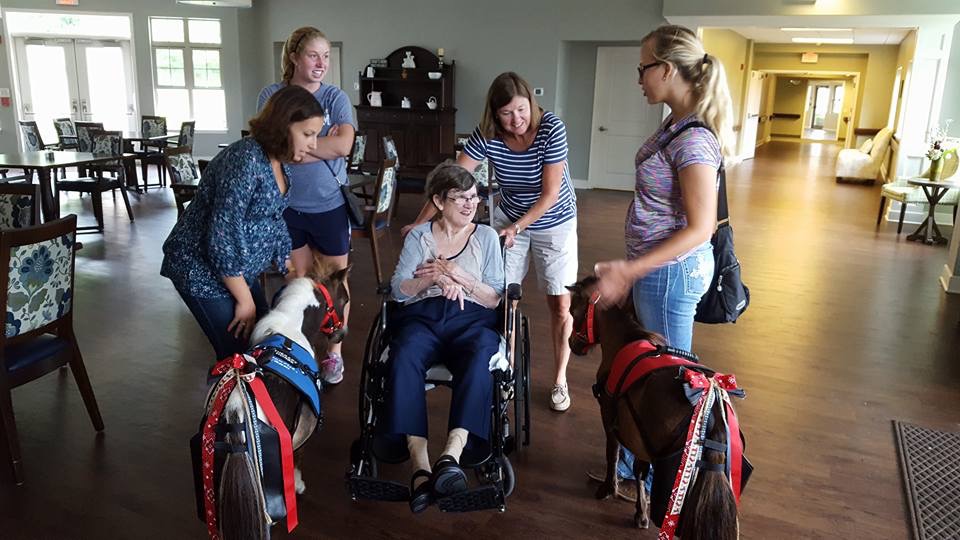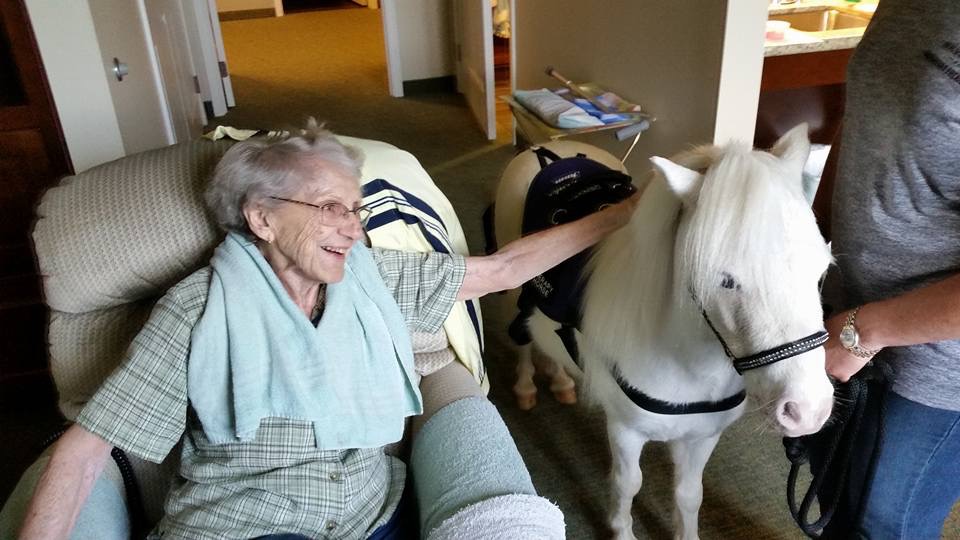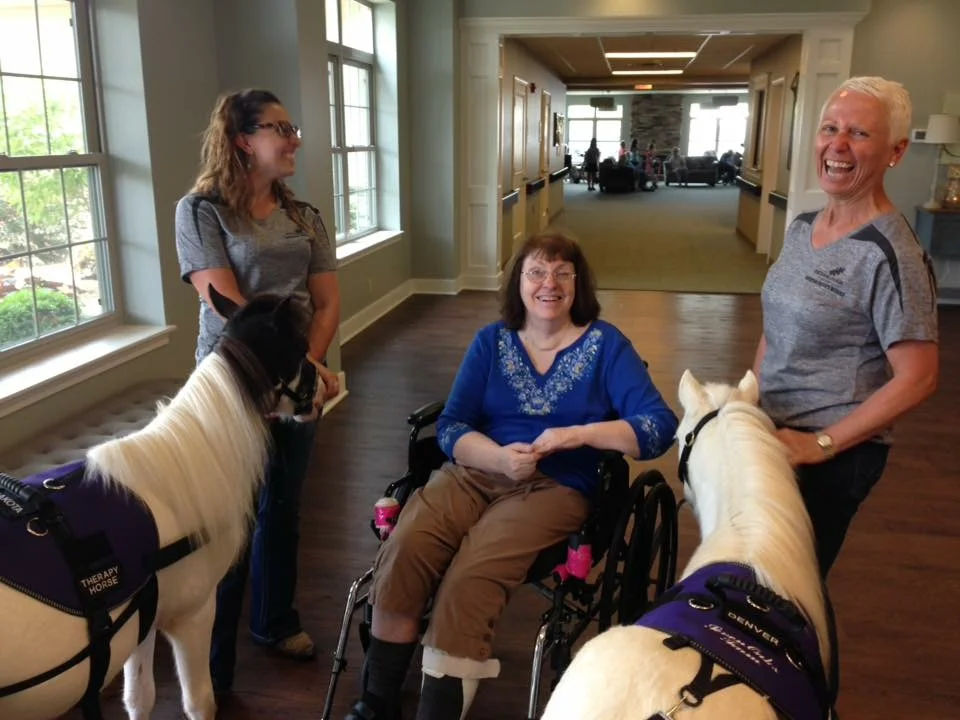Tips for a Great Visit #2
Great Facility Visits
When you make visits to over 75 assisted living facilities, you see a lot and learn a lot. We began to put together a list for activities directors so they could be prepared for the horses when we arrived. The list of tips was handed out during the pre-visit; we wanted to keep our staff and horses as well as the residents safe.
REMEMBER YOUR PRE-VISIT!
Being the directions and map genius of the group; Kate would make the pre-visit. She drove to the facility about a week or two in advance to meet the activities director and hand them a pre-visit packet with written documents about who we are, what all our handlers are required to go through and health certificates for all the therapy horses. We also include information about what a typical donation amount would be and why we need the donation, our W-9 form and tips to make the visit safe and enjoyable for everyone involved.
Tips for a Great Visit #1
A while back we posted our first tip for a great visit: #1 During every visit we provide for your facility, please have an activities director or staff member escort our teams for the entirety of the visit. If our team is left unattended for any reason we will terminate the visit. We make this explicitly clear during the pre-visit to make sure we are not trapped in a lockdown unit or walk into a quarantined room without prior knowledge. Having someone who is familiar with the residents escort you through the facility is a life-saver. They know the patients well enough to let you know who may have an aggressive tendency, who might bite or grab, and alert you to that before you enter the room. They will also know all the door codes to lockdown units and - if there were any issues, could be another set of eyes. If you plan to bring more than one team in for a visit, make sure there is an escort with each team; always err on the safer side.
Tips for a Great Visit #2
This tip is also very important during your pre-visit. The second tip for a great visit: #2 Determine who we will visit and if we are visiting a group or individuals. Make sure you talk thru a plan at the pre-visit with the activities director before you arrive the day of with the horses. Remember too, if you decide to visit this facility once a month that you can rotate visitors; one month a group visit, the next month switch to individualized visits. This way, you can visit with different patients and bring various horses. The residents always enjoy meeting new horses; but be prepared for residents to learn their names and ask for them the next time!
Check the Surroundings
When you get to the facility on your pre-visit, it is a good idea to “scope out the space”. At your pre-visit, discuss where you can park your vehicle and where they would like you to enter and exit. Many facilities will “cone off” an area the day of our visit. Typically, the activities director will have an area in mind for you to visit with their residents. Here are some things to think about when looking at a room (or patio area) for a therapy horse visit:
most of the group visitors will likely be in wheelchairs which will require extra space and the need to move around,
see how the sun or light exposure is coming in, and look for shadows,
point out any tight spaces,
take not of the flooring and/or plants in the room,
for patio area - look for grass, and
locate any medical equipment and placement.
Make sure to look for things as you walk through the building that might be new to your horses (ie: a bird cage) and add that to your training list. If you are asked to use an elevator, note the small differences between this one and others your horse may have been exposed to. For us, an elevator is an elevator; but for horses, even one detail that is different - makes it a new experience.
REVIEW AND MAKE IT CLEAR
When you’re finishing your pre-visit, make sure you review with the activities director the details of the visit. If you have decided the facility will have a group visit to start - that is the plan. Let the director know the type of visit determines the horses that you will bring so changes cannot be made. We are very firm with the idea that “The Plan is the Plan” and making changes at the last minute may mean that their visit will be shortened or canceled.




